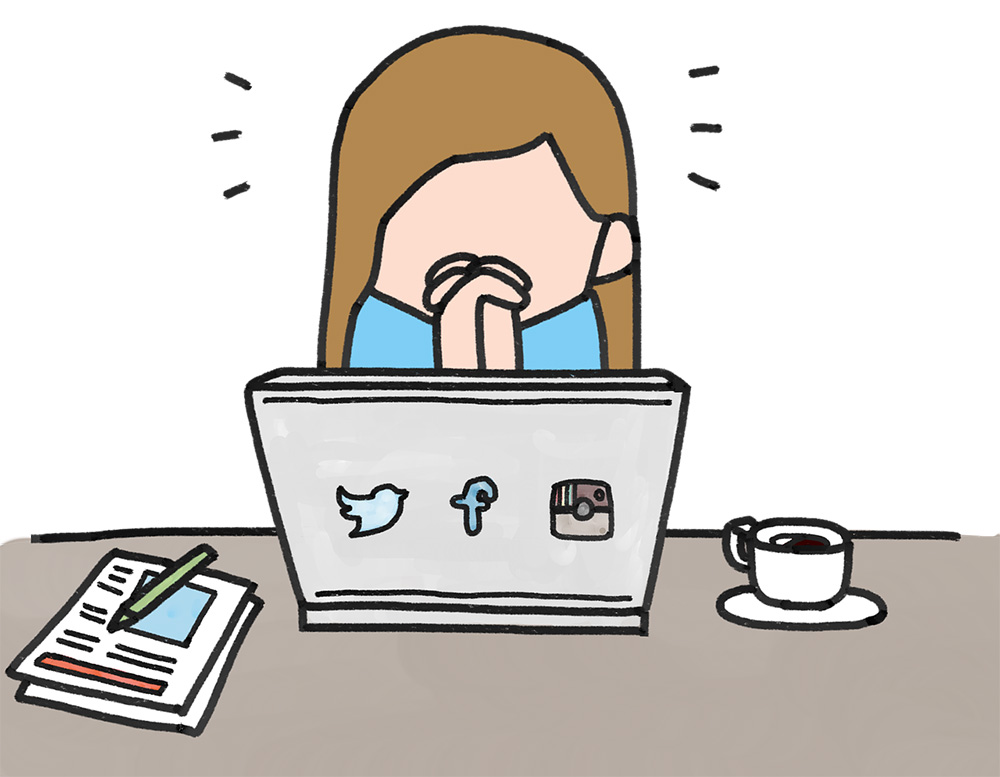In today’s world, you can’t get away from technology. It is a part of almost everything we do. As with anything, there are pros and cons. Of course, technology helps improve life, but it also can harm it if used incorrectly. When it comes to mental health, social media can be very harmful, especially if used in the way most people do today.
Have you ever posted about how depressed you feel one day?
How about tweeting about your gripping anxiety that keeps you in bed all day?
Probably not.
 However, I am sure you’ve posted about some great achievement you accomplished. Maybe you went on this great vacation that you have always dreamed of. The point here is that most of the time you post about the highlights of your life, not the low points. So, when you are scrolling through Facebook, Twitter, or Instagram and see these great things people are doing, you may be going through a low point. Now that you see all these things people are doing you may feel worse about yourself. You may wish you were as happy as the people you follow. However, those people you are wishing to be might be struggling as well, and you are just seeing their high points in life. They probably wouldn’t post about their low points, just like you.
However, I am sure you’ve posted about some great achievement you accomplished. Maybe you went on this great vacation that you have always dreamed of. The point here is that most of the time you post about the highlights of your life, not the low points. So, when you are scrolling through Facebook, Twitter, or Instagram and see these great things people are doing, you may be going through a low point. Now that you see all these things people are doing you may feel worse about yourself. You may wish you were as happy as the people you follow. However, those people you are wishing to be might be struggling as well, and you are just seeing their high points in life. They probably wouldn’t post about their low points, just like you.
We live in a world of comparison, constantly looking for ways in which we are better than our peers and vice versa.
Social media powers this epidemic of comparison by giving people platforms to share what they are doing at all times. As I mentioned above, you will always be comparing yourself to someone’s best moments. Most of the time that will feel like a big let down for you. So, my advice to you is, when you’re scrolling through your chosen social media platforms, remember that the people you follow have bad days too – it could be that probably even worse than yours. If you have trouble with this, maybe try to stay away from social media when you’re going through a tough time.
I personally struggled with trying to keep myself from comparing myself to those I see online. I would feel as though I was not as happy as the people I was seeing online. My whole perspective changed when I saw a presentation by Bailey Parnell, who speaks about the impact social media has on mental health. I was awed by how much comparing ourselves to what we see in social media can harm our mental health. Since then, I have been better able to understand and control how social media makes me feel. I pay more attention to how I am feeling so that if something makes me feel bad about myself, I can quickly assure myself that is just because I am comparing my low to someone else’s high. 
As crazy as it sounds, social media can have a good impact on mental health, given that it allows you to connect with people you may never have the chance to talk to otherwise. It can make you feel as though you belong to a certain community. You can also share your experiences with those who are struggling with the same problems – a great example is Anxiety in Teens. Maybe you’re reading this article because you were scrolling through twitter and found the link AiT tweeted.
Social Media can also be used as a tool to reduce stigma. I have always thought about tweeting about my experiences with mental health, however, I have not had the courage to do so yet. What I am able to do though is take smaller steps. This includes retweeting tweets and articles about mental health I like. I hope that it slowly will help me feel more comfortable with posting about mental health on social media.
As social media becomes more and more prominent in our society we must use caution when accessing these channels of communication. Whether you’re using Facebook, Twitter, Instagram, or Snapchat be careful about how you are interpreting what you see. You must make sure you are taking advantage of such a powerful tool.
By: Shaymus Dunn, AiT Contributor